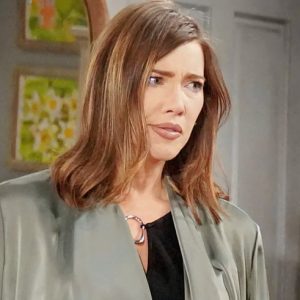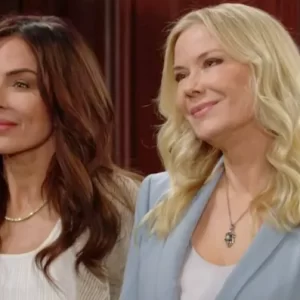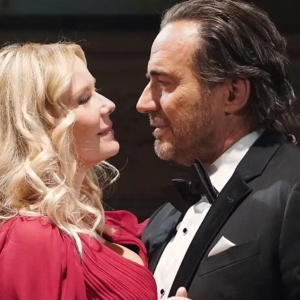For decades, television dramas have held a unique place in our cultural imagination. From the sweeping romances of soap operas to the gritty realism of crime thrillers, dramatic series have long captivated audiences around the world, drawing us into fictional lives with a power that feels almost magnetic. But what is it about drama that makes it so irresistible? Why do millions of people, across generations and continents, invest hours of their lives into stories about people who don’t exist? The answer lies in the universal human need for storytelling—drama offers us a mirror, a refuge, and, most importantly, a shared emotional journey.
A Mirror of Our Lives
At its core, drama succeeds because it reflects the human condition. No matter how heightened or exaggerated the circumstances, the emotions at play—love, jealousy, betrayal, forgiveness—are deeply familiar to us. When a character struggles with heartbreak, we remember our own broken relationships. When another fights for justice against impossible odds, we feel our own frustrations echoed in their struggle.
Take long-running soap operas like The Bold and the Beautiful or General Hospital. On the surface, their storylines may seem extravagant—affairs, secret children, long-lost twins, miraculous resurrections—but beneath the sensational twists lies something universal. These shows dramatize the conflicts of family loyalty, romantic entanglement, and the longing for redemption. Even at their most outrageous, they speak to truths we all recognize.
Escapism and Emotional Catharsis
At the same time, drama provides an escape from daily reality. Few of us will ever run multinational fashion empires, solve gruesome murders, or save the world from supernatural forces. Yet through television, we can live those lives vicariously. Drama immerses us in heightened realities where the stakes are bigger, the emotions sharper, and the resolutions more satisfying than those in our everyday existence.
This escape isn’t frivolous—it serves a psychological purpose. By watching characters navigate extraordinary challenges, we release pent-up emotions of our own. The Greeks called this catharsis, the purging of feelings through art. When we weep over a tragic death on screen or cheer for a long-awaited reunion, we process feelings that might otherwise remain bottled inside. Drama, then, is more than entertainment—it is emotional therapy disguised as storytelling.

Characters Who Feel Like Family
Another reason television dramas endure is their longevity. Unlike films, which end after two hours, many dramas stretch across years, even decades. This long-form storytelling allows audiences to grow deeply attached to characters. Fans of soap operas, for instance, often speak of characters like Brooke Logan, Victor Newman, or Erica Kane as though they are old friends—people they have lived alongside for years.
The bond between audience and character is powerful. We celebrate their triumphs, grieve their losses, and argue about their choices as if they were members of our own families. When a beloved character leaves a show, the grief can feel startlingly real. This speaks to the immersive power of drama: though fictional, these relationships give us comfort, continuity, and a sense of belonging.
The Social Experience of Storytelling
Television dramas also thrive because they are communal experiences. In the past, families would gather around living room televisions to watch the evening’s program together, discussing plot twists afterward. Today, the rise of streaming and social media has transformed that experience into a global conversation. Fans from different countries debate episodes on Twitter, create memes on Instagram, and share theories on Reddit.
This collective engagement heightens the impact of drama. It’s one thing to watch a shocking twist alone; it’s another to gasp in unison with millions of viewers around the world, all experiencing the same story at the same time. Drama becomes more than a show—it becomes a cultural event, a shared emotional language.

Evolution of the Genre
While soap operas and primetime dramas still dominate, the genre itself has evolved dramatically in recent decades. Streaming platforms like Netflix, Hulu, and Disney+ have pushed boundaries with innovative storytelling. Shows such as Breaking Bad, The Crown, and Squid Game demonstrate how drama can be both critically acclaimed and globally popular.
What unites these diverse series is their focus on human conflict. Whether set in the corridors of royal palaces or the violent underworld of drug empires, dramas thrive when they put complex characters under pressure and ask them to make impossible choices. Audiences remain glued to the screen because they long to see how those choices will shape destinies.
Why Drama Will Never Die
The endurance of television drama proves that, no matter how much technology changes, our hunger for storytelling remains eternal. We may watch on phones instead of televisions, binge entire seasons in a weekend instead of waiting week by week, but the essence is unchanged. We still crave the thrill of suspense, the ache of heartbreak, the satisfaction of resolution.
And drama delivers.
It assures us that our struggles are not unique, that others—whether real or fictional—have walked similar paths. It allows us to feel deeply, to escape when necessary, and to connect with strangers who love the same stories we do. In a fragmented world, drama unites us in shared emotion.
Final Thoughts
So, why can’t we stop watching television dramas? Because they give us what we need most: a mirror to reflect our lives, a window into other worlds, and a bridge that connects us to one another. Whether it’s the decades-long sagas of daytime soaps, the prestige storytelling of primetime, or the groundbreaking experiments of streaming services, drama remains the beating heart of popular culture.
As long as people hunger for stories that make them laugh, cry, scream, and hope, dramas will continue to thrive. The names of the shows may change. The platforms may evolve. But the emotional power of drama—its ability to grip us, move us, and stay with us long after the credits roll—will remain timeless.





